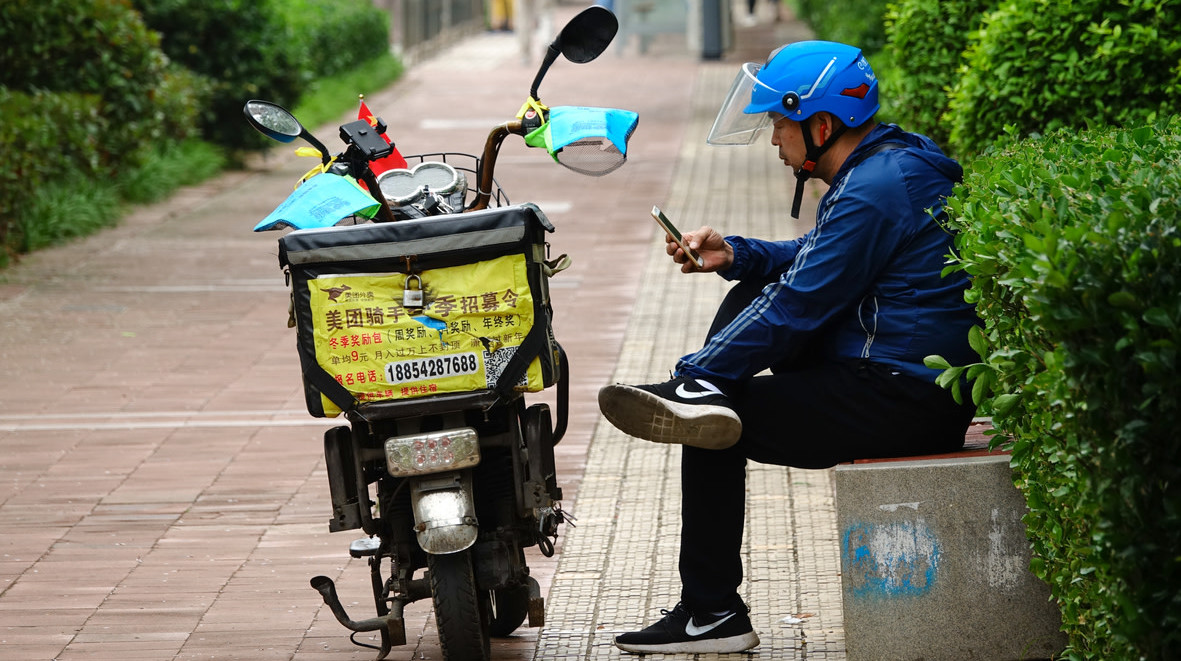Chinese Food Delivery Companies Experiment With Contactless Service
Coronavirus, as we know, is spread through human contact. The best way to avoid getting it, especially in heavily infected places like China, is to quarantine yourself inside your house. But the problem with never going out is that you'll eventually run out of food, and that means you'll have to order more, which requires someone to bring it to you, which means human contact with the outside world. In our modern world, a full quarantine is practically impossible.
Meituan, the leading Chinese food delivery company (it works with 5.9 million retailers and employs 700,000 couriers), has seen an enormous uptick in food delivery, not just for meals, but for groceries as well. Many of those meal orders have been enough food to feed several people, a rarity in China where food delivery is usually reserved for people eating alone. In late January, Meituan began piloting a contactless delivery service in Wuhan, the southern city where the coronavirus first appeared.
In a contactless delivery, the customer and courier agree on a location for the courier to leave the food. After dropoff, the courier calls or texts the customer to let them know it's there. Meituan also provides cards with the temperatures of everyone who was involved in preparing and delivering the food and a reassurance that all the equipment, including the courier's bike, has been disinfected. The couriers have also been instructed to wear gloves and keep a safe distance from other people on the road.
Within a week, Meituan had rolled out contactless delivery throughout the entire country and other companies, including Pizza Hut and KFC, had begun offering their own as well. During its first two weeks, January 26 to February 8, a Meituan spokesperson told Business Insider, 80% of customers. requested the contactless service. In Wuhan, that percentage rose to 95.1%. The spokesman noted that 10% of orders come from different cities than where the delivery will be made, which indicates that people are sending food to family and friends in more infected areas.
The increase in orders has led to a shortage of couriers. Meituan has borrowed couriers from other restaurants and has also tried experimenting with unmanned (and disinfected) delivery vehicles, Quartz reports. Quartz asked GrubHub and Ubereats if they were taking notes, but both companies were noncommittal. If it happens, GrubHub CEO Matt Maloney said, his company will be "all over it."
